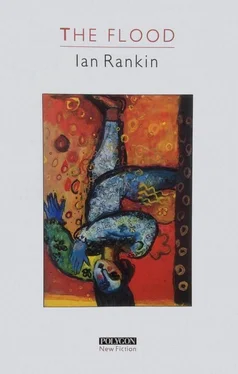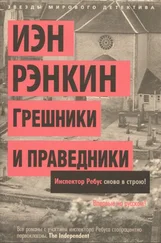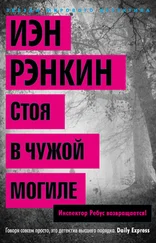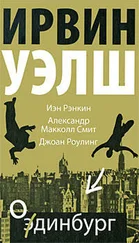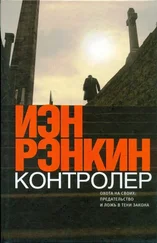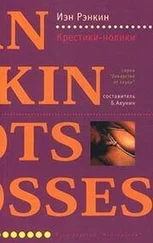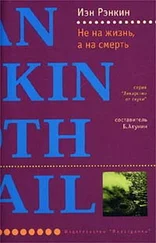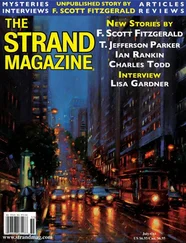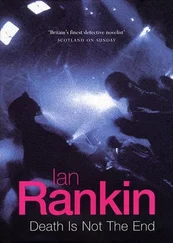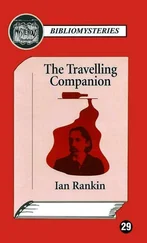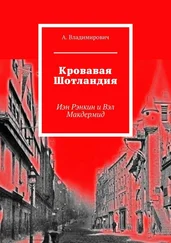Today he had stolen a pound from his mother’s purse. Three days ago he had done the same thing. His guilt echoed in the arguments around him, and beyond these sounds lurked the conspiratorial silence of the distant night air, mocking him for what he was about to do.
But he would do it, for he needed the money. He had stolen, he had scrimped, he had done everything he could think of. Everything except this. He shivered. It had to be tonight. All he needed was confidence. He was walking towards Cardell, towards where Rian lived. There were new houses there, incomers who did not know him. He was not the witch’s son to them. He fingered the tin of boot-polish in his pocket. The dimmed light from Venetian blinds showed him his targets. And suddenly he thought again, I’m too old for this, much too old. I’m too old and it’s too early and it’s stupid. Stupid, stupid, stupid. He rubbed at his brow as though worrying a headache. It was for the money. He needed the money and he needed it tonight. The money for Rian. He was so close now, and yet this gaping distance confronted him. He sighed. For the money then.
He crouched beside a hedge and took the tin from his pocket. It was half empty. His mother used it on her black leather boots, he on his school shoes. It smelled of warm kitchens, of fruit in bowls, making him even more uncomfortable for some reason. He dabbed his hand into the tin, smearing the thick polish over both cheeks and his nose, all the time forcing himself not to think about the minutes to come. Then, having wiped his hands on the edge of the pavement, he took off his jacket and turned it inside out. When he put it back on it was orange and furry with arms of cotton-white. It would have to do.
The house reared in front of him, looking bigger than ever. He stood at the gate, feeling sick, feeling his heart pounding with fear. Then he remembered that it was only a Hallowe’en prank after all, and he shuffled up the path towards the imposing wood and brass of the door. He stood on the doorstep for a long time, not thinking, just standing there. When someone finally walked through the hallway he panicked, thinking that they were coming out and would find him standing there suspiciously. He thought that he had his story ready, so he pushed the bell. The person in the hallway stopped, put something down on a table, and opened the front door.
It was a man in his early fifties, dressed for an evening in. His slippers were furry-brown and well used. His cardigan hung loosely about him. He wore glasses and had a silver moustache. Sandy suddenly remembered that it was not Hallowe’en and that he was strange to the man in his strangeness.
‘Well?’ said the man. Sandy was purple-faced and hoped the polish would disguise the fact. ‘Well?’ Two mugs of coffee were steaming on a small telephone stool behind the man, and on the wall next to them hung an ornate mirror in which Sandy caught glimpses of himself. He looked like a tinker. ‘Well?’
‘Penny for the Guy,’ he stammered. The man stretched to look outside.
‘What Guy exactly?’ he asked. Sandy stared stupidly towards where the man was looking. He began to remember his story.
‘I’ve not built it yet,’ he said. ‘That’s why I need the money.’ Need the money for Rian. ‘It’s going to be the biggest Guy in the village. I’m having to start it early, you see. It’s for charity.’ The final lie made him lower his eyes guiltily to the doorstep. He had been talking too quickly, he realised.
The man chuckled.
‘That’s fly,’ he said. Then: ‘Margaret! Come out here for a minute!’
There was a tortured, smiling silence until a fat woman, knitting in hand, came to the door. Her husband made room for her. Between them hung the mirror.
‘Well,’ she said, ‘someone to see us.’ Her voice and her face were ripples of condescension.
‘He’s a guiser,’ explained her husband, ‘but he doesn’t have a Guy. That’s why he needs the money. That’s why he’s more than a month early in calling. It’s for charity, he says.’
Sandy hoped that his own silence would force the money from them. He wanted to run from their doorstep, and was prevented from doing so only by the thought of their laughter.
‘And will we see this Guy when it’s finished?’ said the woman.
‘Oh yes,’ said Sandy. He watched himself in the mirror. He looked a bit like Robbie, though dirtier. The comparison attracted him for a moment until he realised that the woman had spoken again. ‘Pardon?’ he said.
‘I said can you do something?’
‘Do something?’
‘Aye,’ said the woman. ‘Sing something.’
‘Sing something?’ he echoed, looking to the man.
‘Is it a boy we’ve got here, Margaret, or is it a bloody parrot?’
They both had a good laugh at that, bending over slightly. Yes, he looked a little like Robbie, hard and unmoving.
‘I can’t sing,’ he said.
‘Well,’ said the woman, ‘tell a joke then.’
‘You’re a bit old for this, son, aren’t you?’ said the man.
‘You must be able to do a dance at least,’ said the woman, shaking her fleshy bulk like an aunt at a wedding reception.
‘Go on.’
Sandy stared at his feet. They were monsters, infected with elephantiasis. He moved one of them out of curiosity, then began to do a little shuffle. He gazed at himself in the mirror. He saw a scruffy adolescent with jet-black hair and his coat inside out doing a stupid jerking dance on a strange doorstep. He forced himself to think of Rian, but it did not work. A solidity was gathering in his throat. He thought again of running, of turning on his heels and flying up into that beautifully clear night air. His audience smiled and clapped their hands in time to his movements, standing back a little into their doorway for a better view. The man began to whistle. The woman hummed in a broken-down voice, her hips moving obscenely. Sandy was appalled. He stared at them like a bear on a chain, and they were clapping and whistling and tapping their feet and humming along with the rhythm. He came to a furious stop. They stopped clapping.
The man examined Sandy with sudden depth.
‘You’re not much good at this, are you?’ he said. ‘You’re not much good.’ He chuckled. It was not a kind sound at all, Sandy realised. Children could be heard in the distance. The thought of money was all that held Sandy there, and he wanted to blurt out the truth to these stupid people, these warm, happy, stupid people. He bit his lip thoughtfully, hoping it would be interpreted as a sign of stubbornness. When he looked into the mirror now he saw a resolute face, a face anonymous and to be feared. He liked this look. He stared hard at the man. The woman had stopped humming. She took her coffee uninterestedly from the stool. She clutched her knitting to her bosom.
‘How much will we give him?’ asked the man, turning to his wife. She shrugged, then looked for a second at Sandy.
‘He wasn’t worth much,’ she said icily. Then: ‘The programme’s back on.’
‘I was worth much!’ Sandy called to her retreating back.
The man attempted a more open chuckle.
‘Aye, you don’t do much these days for your money, do you? That’s the trouble with this country. As little as possible for as much money, that’s the way of it. You’re learning the ropes fast, son. Not too fast, I hope.’ He was digging into his pocket. His hand came out in the shape of a small fist and extended towards Sandy, who opened his own palm and received the chinking money without looking at it.
‘You don’t half talk a lot of shite, mister,’ he said, turning to go.
The man chuckled again. The sound of bats against a window pane, of candles being snuffed.
‘Don’t go casting spells now,’ he called bitterly as he closed the door. Sandy’s stomach did a single somersault, no more, and then he grinned at having forced the feeble old man into saying that. He took off his jacket and reversed it as he walked. He felt stronger now, different. But he could not go through that again, not for anything, not even for Rian, his Rian. He moved further up the hill, away from the noises of the children. He lifted some newspaper from the ground and spat on it, scrubbing it against his face. He opened his warm, grubby hand and counted nearly fifty pence. Fifty pennies only. But he had gained something else, something that oozed from him as he rubbed harder and harder at his cheeks, enjoying the harsh, bright pain. Fifty bright pennies for Rian, his Rian.
Читать дальше
